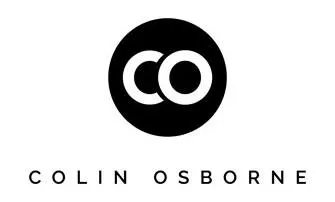
How to Write Great Content For Your Business
The words you use on your business website are important. They are one of the key ways you communicate with your customers and prospects, informing them about your products and services and why they should buy from you. In order to ensure that your website content is effective, there are a few things you should keep in mind.
11 Tips To Leave You With
1. Write about what you know
The best way to ensure that your content is great is to write about topics that you're knowledgeable about. When you're passionate about a subject, it shows in your writing, and readers will be able to tell. If you try to fake it, they'll see right through you. So, if you're not an expert on a particular topic, it's best not to write about it
2. Keep it short and sweet
People have short attention spans nowadays, so it's important to get your point across quickly and efficiently. No one wants to read a long-winded blog post that could have easily been made into a paragraph. Get to the point and make sure your writing is clear and concise
3. Make use of headlines and subheadings
Breaking up your text with headlines and subheadings makes for an easier read—and again, helps with those short attention spans. It also helps Google index your content properly so people can find it more easily when they're searching for relevant information
4. Use images
A picture is worth a thousand words, as they say! In addition to making your blog post look more attractive, images can also help break up blocks of text and add visual interest. Just make sure that any images you use are high quality and relevant to the topic at hand
5. Proofread
Typos are distracting and make you look unprofessional—two things you definitely don't want when you're trying to attract customers! Always proofread your work before hitting publish, or better yet, have someone else proofread it for you. An extra set of eyes always helps catch mistakes that you may have missed
6. Write guest posts
If you're struggling to come up with ideas for new content or simply don't have the time to write posts yourself, consider enlisting the help of guest writers. Guest posts can add fresh perspectives and help expand your audience reach—just be sure to vet potential guest writers carefully to make sure their writing style meshes well with yours
7. Promote your content
Once you've written a great blog post, don't just sit back and wait for people to find it! Share it on social media, link to it in other blog posts, and promote it any other way you can think of. The more people who see your content, the more likely someone is to convert into a paying customer.
8. Be Consistent
Your website content should be consistent with the overall tone and voice of your business. If you're selling luxury goods, for example, your copy should reflect that by being professional and formal in tone. On the other hand, if you're selling fun and funky fashion items, your content should be more lighthearted and casual. inconsistency in tone will only serve to confuse your audience and make them less likely to buy from you.
9. Use images and videos
Words are not the only type of content you can use on your website. Images and videos can also be effective in conveying messages to your audience. In fact, including visuals on your website can actually help improve its overall readability. Just make sure that any images or videos you use are relevant to the text on the page and add value to the user's experience.
10. Make It scannable
People don't read websites; they scan them. This means that you need to make your content easy to scan so that visitors can quickly find the information they're looking for. Use headlines, subheadings, and bulleted lists to break up your text, and highlight key points with bold or italicized text.
11. Keep It readable
The average person has a reading level of about an eighth grade. This means that your website content should be written so that it can be easily understood by the majority of people who visit your site. Use short sentences and paragraphs, and avoid using jargon or technical terms unless you are certain that your audience will understand them.
Conclusion
Remember, the words you use on your website are important. They are one of the key ways you communicate with your customers and prospects, informing them about your products and services and why they should buy from you. Keep these tips in mind to ensure that your website content is readable, scannable, visually appealing, and consistent with the overall voice of your business.

